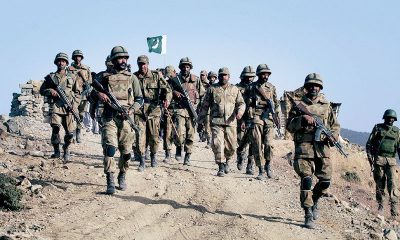By
Muhammad Waqas Awan
The US-led war on terror has spilled into Pakistan, particularly in Federally Administered Tribal Areas (FATA) due to weak border controlled management. This has increased the security challenges for Pakistan, in turn increasing another dimension of the threat from the western border (Afghanistan) to the already existing threat from the eastern border (India).
This has posed domestic security challenges in the form of suicide bombings, terrorist sanctuaries, drone attacks, sectarianism and attacks on military and civilian infrastructures. The inability of the successive US administrations of presidents G.W. Bush and Barack Obama, in addition to the Pakistani political regimes since 9/11 to include the tribal leaders of FATA in dialogue and negotiations has further minimised the chances of a long-term resolution of the conflict which has fundamental implications for Pakistan and Afghanistan as well as the US’s global and regional foreign policy.
Without understanding the nature and history of the people living across the Durand Line, this present ongoing conflict inside South Asia cannot be resolved peacefully. Failure to improve bilateral relations between India and Pakistan, the trust deficit being bridged between them and a stable government in Afghanistan based upon the principles of transparency and good governance, militants will exploit and gain leverage due to such a deficit and lack of communication among stake holders (regional states) in the war against terror.
Pakistan’s counter terrorism strategy has also not succeeded in eliminating terrorism from the tribal areas. The civilian as well as the military establishment is responsible for the state of security affairs inside Pakistan. The civilian administration’s pursuit for the just nature of war on terror inside Pakistan has been a shaky one, although Parliament has acknowledged the losses suffered by the people of Pakistan, it has at the same time not shown the commitment to lead this ongoing war on terror towards its logical end.
The government of Pakistan has been unable to garner the popular support against militancy and terrorism due to the lacklustre role of its own parliamentary representatives, the military leadership blaming the civilian leadership for the lack of popular support for the ownership of this war inside the country. The military’s advance against the terrorists without civilian supervision of the state of security affairs has led to the emergence of negative results, such as suicide attacks, drone attacks, terrorist sanctuaries, sectarianism and internal displacement. FATA has suffered the most due to such repercussions on account of the absence of civilian input from FATA, the military’s presence in the absence of civilian checks in tribal areas, lack of administrative infrastructure and poverty.
FATA beyond any doubt is the nucleus and epicentre of the war against terror inside Pakistan. FATA has not only suffered because of internal policy lapses on behalf of the civilian and military establishments, but due also to the actions of stake holders on the external front. The US has a primary role to play in this regard as the war against terror was initiated as a US led multilateral initiative. The US is planning to leave this region in accordance with the contours of the Af-Pak strategy and their exit strategy from Afghanistan. The withdrawal strategy seems questionable as the end to this war is not in sight in the post-withdrawal milieu.
In addition to this, the US initiated drone strikes in the Pakistani controlled territories and unilateral US sponsored and facilitated events such as the Raymond Davis case, Osama Bin Laden operation, and Salala check post incident are just a few examples which have hampered the joint collaborative combatant spirit of the US and Pakistan against terrorism. The end result of such events has resulted in the form of an escalated level of mistrust between the US and Pakistan. Terrorists have found leverage in this situation, the lack of consensus on collaborative action both inside and outside Pakistan resulting in the rise of terrorist activities on both sides of the border.
FATA acts as a major make or break ground on this front. The US blame game against Pakistan’s security agencies accusing them of harboring terrorist sanctuaries and Pakistan’s security perception of creating segregation between good and bad Taliban is not going to solve the ever worsening security quagmire inside FATA. Furthermore, the rise of tensions between Pakistan and Afghanistan on several accounts, such as the illicit cross border movement of arms and terrorists, proxy involvement to damage the economic and security interests of other regions damages prospects for a regional consensus to counter terrorism, extremism and militancy across the region.
This research study highlights the fact that the security situation inside Pakistan has begun to worsen, particularly after terrorists acquired sanctuary inside Pakistan controlled tribal areas in the wake of the Afghan Taliban and Al-Qaeda affiliates’ tactical retreat. This study also highlights the fact that unilateral counter-terrorism initiatives such as drone attacks in accordance with the contours of the Af-Pak strategy are complicating the security situation. The US offensive Af-Pak strategy has further extended the ongoing war as opposed to restricting it.
Peace in FATA does not only ensure peace, stability and progress in Pakistan but it will also boost the prospects for peace and stability inside Afghanistan. If this realisation does not become a part of the security frameworks of all stake holders in this quagmire, then the US, Afghanistan and Pakistan should be prepared for the worst case scenario as they are not moving in any other direction.



No Comments Yet!
You can be first to comment this post!